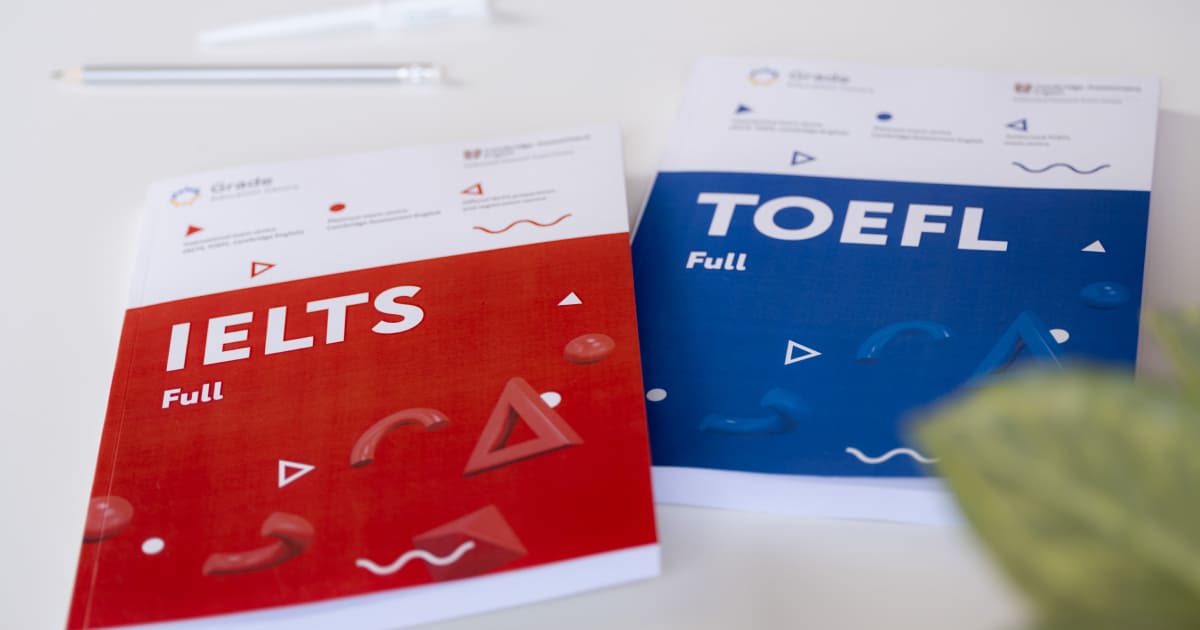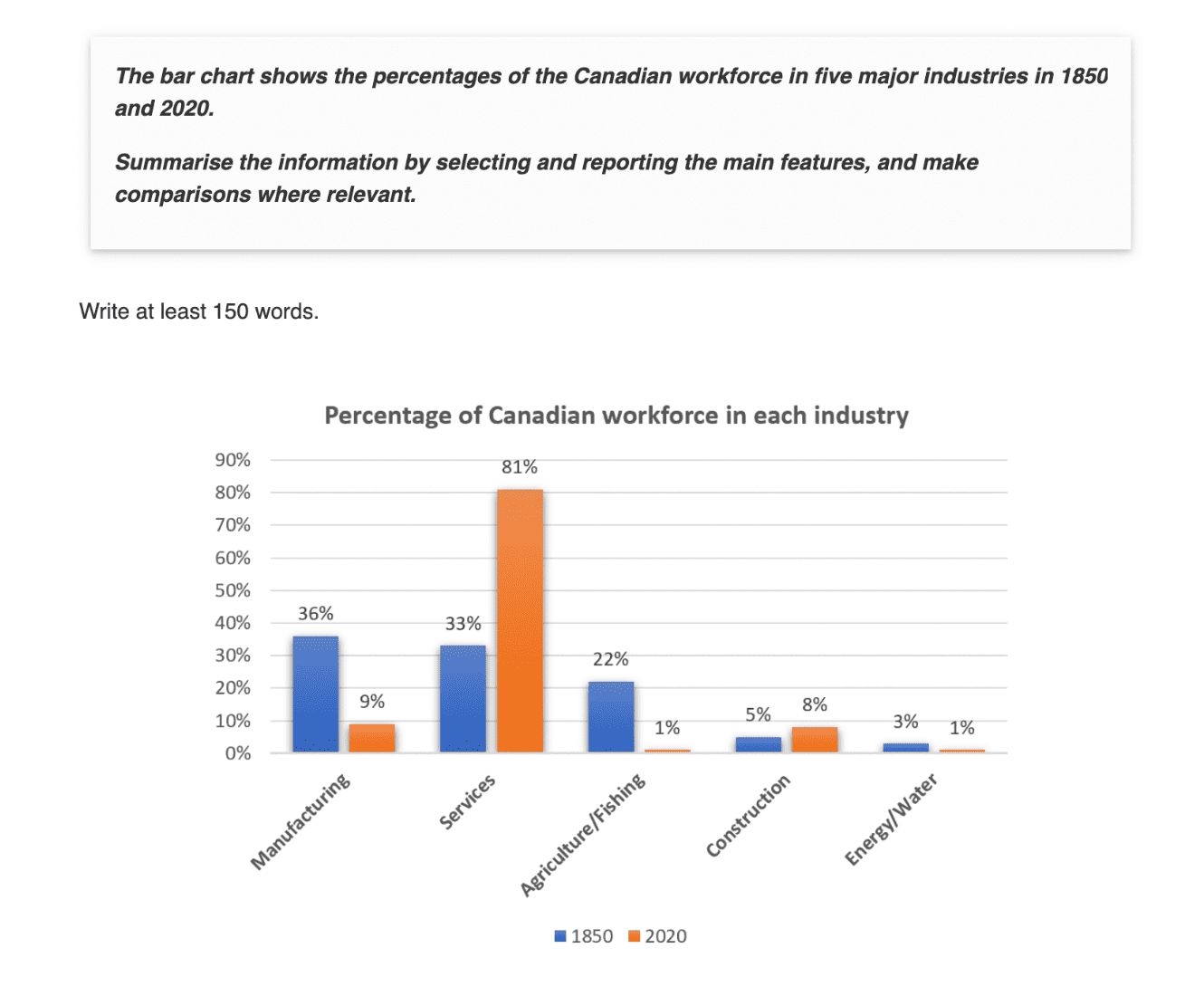Harnessing Online Tools for Effective Language
- Activities
- Tips & Strategies
- Methodology

21.11.2022
The number of candidates taking IELTS is increasing every year. If you ask them about the most challenging section of the test, the majority will answer, "It's definitely writing". Test-takers who score 8 or 9 in reading, listening, or speaking are often surprised when they see band 6 on their certificates.
As teachers, we can help our students to improve their performance and score better on the test. In this article, we are going to share some tips for both new and experienced IELTS teachers that can be applied in IELTS classrooms straight away and that will allow students to perform to the best of their ability.
There are two exam modules: General and Academic. The writing section in each involves two tasks:
| IELTS General | IELTS Academic |
| Task 1. Write a letter (150 words) | Task 1. Write a report on a visual (150 words) |
| Task 2. Write an essay (250 words) | Task 2. Write an essay (250 words) |
Test takers have 60 minutes to complete both tasks on paper or in a computer version of the test.
There are three types of letters in IELTS General Task 1:
In IELTS Academic Task 1, candidates have to write a report on one of the following types of visuals or a set of data:
Task 2 is the same for both modules, General and Academic, and involves writing one of the following types of essays:
It's important to cover all question types and appropriate structures for writing the answers during IELTS preparation with your students. They have to be aware of the differences between a formal and informal essay, a report on a table and a combination of tables, an opinion essay and a mixed essay, for example.
IELTS Writing is marked according to four criteria:
Your IELTS teaching will be more effective if you relate to these criteria when giving feedback to your students. Explain to them what each criterion means, and sometimes use them to evaluate your students' writing.
In our online course "How to Teach IELTS Essays" we look at the key point of IELTS assessment in more detail as well as practice evaluating different essays written by test-takers using the four criteria.
Learn more about IELTS essays right now
This does not refer to only IELTS Writing. Giving students a text to read before they have to write their own is always a good idea. For example, if you are teaching writing a letter of complaint, let students read a few sample letters. If you are working on an essay, read essays.

Model texts are especially useful if you teach unfamiliar genres. Such texts provide students with a concrete example of what is expected from them and help them get a better understanding of structures, conventions, and organizational features within the text they have to produce.
Models are valued in genre-based writing instruction because they allow learners to (1) raise an awareness of the targeted rhetorical conventions; (2) create a mental model of the genre and (3) ease some of the anxiety associated with writing a new genre.
Pelogihitis, J. & Ferreira, D. (2018). Examining the role of model texts in writing instruction. Accents Asia, 10 (1), 17-26
Build your tasks in such a way that first students notice these things in the text. After that, they build their awareness, and they will eventually be able to apply this knowledge in their own writing in the future.
This can refer to teaching linkers or specific vocabulary students will need for completing describing visuals in IELTS Academic.
For example, you can create your own activities by taking sample answers from various sources such as ielts-writing.info, remove the target words, and ask your students to fill in the gaps.
Such activity will not only help your students polish their vocabulary but see and remember how the summary is structured, how the main features of the visual are reported, and the date described and compared. For example:

Taken from: https://www.english-exam.org/IELTS/academic_writing_samples_task_1/1208/
And the adapted task is:
Look at the bar charts. Read the following model answer. Complete the summary with the most suitable word from the box. 0 is done for you.
| bar charts decline a steep rise a decline radically marked growth two thirds |

The 0) bar charts divide the Canadian workforce into five categories based on the type of industry they work in for the years 1850 and 2020.
The overall trend shown in the data is 1) ______ in the proportion of employees engaged in the service industry, coupled with a 2) ________ in manufacturing. The most salient feature is that in 2020 81% of the workforce were involved in providing services, which contrasts sharply with the figure of 33% in 1850. In contrast, we observe a huge drop in the manufacturing industry from over a third in the mid nineteenth century to just 9% by the early twenty-first century.
Furthermore, the 170-year period saw a 3) ______ fall in the agriculture and fishing sectors, leaving food production with a tiny 1% of Canadian workers. Similarly, workers in energy and water companies decreased by 4) _______. On the other hand, the construction industry experienced significant 5) _______ from 5% to 8% over the period.
In general, the job profile of the Canadian workforce changed 6) ________ between 1850 and 2020, with the increases coming in the construction and service industry but all other areas seeing 7) __________.
(191 words)
Key: 1 a steep rise, 2 decline, 3 marked, 4 two thirds, 5 growth, 6 radically, 7 a decline.

Students often struggle with generating ideas for their essays. It is a good idea to brainstorm and discuss them together with their peers. Such activities as group discussion, a debate, or a ranking activity will expose students to a variety of ideas and provide them with reasons and examples to support their ideas in the main body paragraphs of the essays.
Students should write down the things they discuss. After that, you can either ask them to write an essay similar to the one you provided as a model text but using different ideas or allow them to use the same ideas but change the essay type.

Approaches to Teaching IELTS Essays Writing
Read moreParaphrasing is a crucial skill for IELTS Academic. If candidates lift words and phrases from the rubric, it is considered to be a mistake that leads to losing marks. The main reason for this is that questions are always designed to act as introductory and concluding paragraphs, which is puzzling for candidates.
Start with paraphrasing short paragraphs of any text like a piece of news or even nursery rhymes, and then move on to paraphrasing the tasks. Explain to your students what examiners are looking for.
Although many students prefer the teacher to check their writing and give feedback, peer correction has proved to be an effective teaching tool as well. Especially, when you teach IELTS writing in groups. It actively involves students both in the learning and teaching process.
One of the ways it can be done in a classroom is "Betting game" suggested by Lewis Richards, co-author of IELTS Advantage: Writing skills.
After students hand in an essay, choose ten sentences with key errors, and type them up, highlighting the part of the sentence which needs to be corrected.
Divide students into teams. Then they have to correct each sentence, and bet between 1 and 10 points on their correction. So if they correct a sentence and feel absolutely sure about their correction, they can bet 10 points on it. If they are less sure, they bet fewer points, with a minimum of 1 for each sentence.
If they are right, they keep the points for each sentence, but if they are wrong they lose all the points. Therefore with 10 sentences to correct, the maximum points is 100, and the minimum -100.
1. If there is problems about the house, usually parents solve these matters.
2. For example, if you are young and you want to buy a house, it would rather live at home and save up money than to pay rent.
3. Almost people are independent from their parents when they get old.
4. Renting a house or flat is not an easy task for most family.
5. I’m agree with all arguments, but it is a personal choice, and I prefer to live alone
Answers: 1. are 2. it would be better to 3. Most 4. families 5. I agree.
Number two has more than one possible answer, which gives the teacher the opportunity to feed in other options (‘it is preferable to’/’it makes more financial sense to’, etc).

IELTS Essay Types and Structure
Read moreOf course, every teacher has his own tips on how to teach IELTS Writing. But the main thing is that all of them are aimed at making our students' performance better. Some pieces of advice might work well with one group of students and not be effective with others. The tips we offered today are tried and tested, so it's up to you whether to follow them or not.
Will you try our tips in your classroom?
Yulia Chorna
Author
Product Manager at Grade University | Experienced Educator in General, Business English & Exam Prep | ELT Conference Organiser | Speaker at TESOL & IATEFL Conferences | Passionate About Teacher Development & Educational Innovation
Comments
Leave your comment